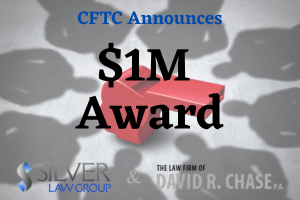 On August 8, 2024, the U.S. Commodity Futures Trading Commission (CFTC) announced a whistleblower award of over $1 million dollars. While the Commodity Exchange Act ensures confidentiality protections for CFTC whistleblowers, this award highlights the CFTC’s commitment to regulating digital assets.
On August 8, 2024, the U.S. Commodity Futures Trading Commission (CFTC) announced a whistleblower award of over $1 million dollars. While the Commodity Exchange Act ensures confidentiality protections for CFTC whistleblowers, this award highlights the CFTC’s commitment to regulating digital assets.
The heavily redacted CFTC order states that the whistleblower received the award because the whistleblower voluntarily provided the information, through form TCR, and their information led to a successful enforcement action. Continue reading
 SEC Whistleblower Lawyer Blog
SEC Whistleblower Lawyer Blog


 On June 17, 2024, the U.S. Commodity Futures Trading Commission (the “CFTC”) reached a $55 million settlement with Trafigura Trading LLC, marking a significant aggressive shift in the agency’s approach to whistleblower protections. This case sets a new precedent in the CFTC’s enforcement program and underscores the CFTC’s commitment to protecting whistleblowers.
On June 17, 2024, the U.S. Commodity Futures Trading Commission (the “CFTC”) reached a $55 million settlement with Trafigura Trading LLC, marking a significant aggressive shift in the agency’s approach to whistleblower protections. This case sets a new precedent in the CFTC’s enforcement program and underscores the CFTC’s commitment to protecting whistleblowers. 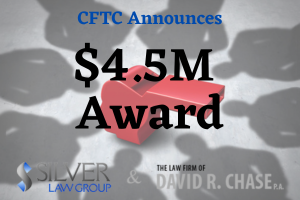 The Commodities Futures Trading Commission (CTFC) announced a whistleblower award of over $4.5 million for information and assistance that led to a successful enforcement action. The individual received an unspecified percentage of the monies collected in fines and sanctions.
The Commodities Futures Trading Commission (CTFC) announced a whistleblower award of over $4.5 million for information and assistance that led to a successful enforcement action. The individual received an unspecified percentage of the monies collected in fines and sanctions. 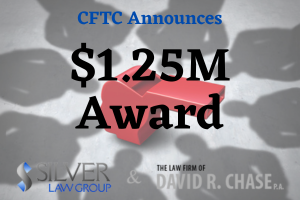 The latest $1.25 million award from the
The latest $1.25 million award from the  The
The 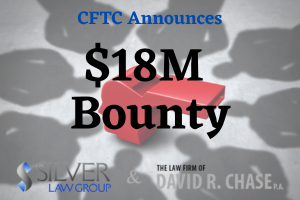 The Commodities Futures Trading Commission (CFTC)
The Commodities Futures Trading Commission (CFTC) 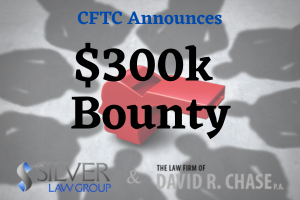 The Commodity Futures Trading Commission (CFTC)
The Commodity Futures Trading Commission (CFTC) 
 The Commodity Futures Trading Commission has
The Commodity Futures Trading Commission has  If you work in any area of commodity futures trading and see or know of wrongdoing within your industry, you could receive a substantial reward for your information. The Commodity Futures Trading Commission (CFTC) has a
If you work in any area of commodity futures trading and see or know of wrongdoing within your industry, you could receive a substantial reward for your information. The Commodity Futures Trading Commission (CFTC) has a